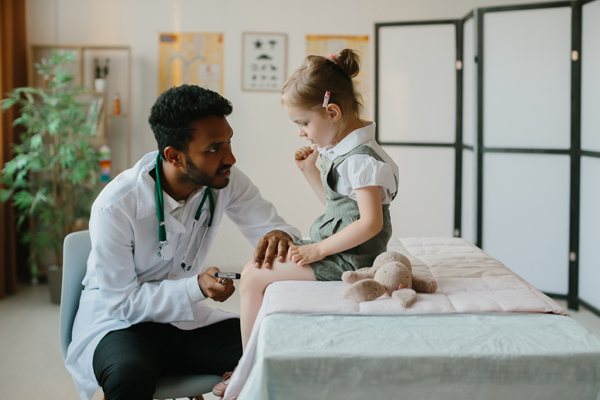What Happens During a School Physical Exam?

A school physical exams ensures students meet health requirements and start the year ready to learn. This visit provides a preventive snapshot of growth, development, and risk factors while building a strong partnership with the care team. Families can expect a stepwise process that evaluates readiness for classes, athletics, and extracurricular activities.
Registration and health history
The appointment begins with registration, consent forms, and a review of medical, behavioral, and family history. The clinician records medications, allergies, prior injuries, learning accommodations, and chronic conditions such as asthma or diabetes. A school physical exam also includes mental health screening to identify stress, anxiety, or sleep problems that may affect performance. For adolescents, brief confidential time encourages honest discussion about safety, substance use, and healthy relationships.
Vitals, growth, and weight management
Next comes a head-to-toe assessment with objective measurements. The care team records height, weight, body mass index, blood pressure, pulse temperature, and oxygen saturation. Growth charts help track trends and guide nutrition and activity counseling. When metrics suggest risk, the provider offers evidence-based weight management guidance, including balanced meal planning, activity goals, and referral options. A school physical exam emphasizes realistic habits that support focus, energy, and long-term performance.
Vision, hearing, and preventive screenings
Clear vision and hearing support classroom success. Standard tests evaluate acuity and sound detection, with referrals for glasses, contacts, or audiology when indicated. Depending on age and school requirements, screening may include hemoglobin, lipid panels, tuberculosis risk assessment, or sexually transmitted infection testing. The provider may also review dental care, fluoride use, sun protection, and provide injury prevention tips. A school physical exam also verifies immunization status and recommends updates for vaccines such as Tdap, HPV, and meningococcal.
Musculoskeletal and sports readiness
For students playing sports, the provider performs an orthopedic evaluation of posture, flexibility, strength, and joint stability. Heart and lung exams for murmurs, rhythm concerns, or exercise-induced symptoms are also evaluated. Functional tests like single-leg balance and squat patterns reveal movement deficits that elevate injury risk. Guidance may include stretching routines, cross-training ideas, hydration strategies, and concussion education. A school physical exam documents restrictions, protective equipment needs, and return-to-play clearance.
Personalized counseling and care plans
Every visit ends with practical next steps. The care team sets goals for sleep, screen time, nutrition, physical activity, and stress management. Chronic conditions receive updated action plans, such as inhaler timing for asthma or emergency allergy protocols. The provider coordinates forms for school nurses, coaches, and teachers, ensuring medications and accommodations align with academic demands. Families leave with follow-up timelines and community resources that promote continuity of care.
Start your child off on the right foot for the school year
A school physical exam does more than satisfy a requirement; it strengthens health, safety, and learning capacity. With thorough evaluation, targeted counseling, and timely vaccinations, students enter classrooms and fields ready to thrive. Partnering with primary care or family medicine providers keeps momentum strong throughout the year. To schedule your child's physical before the school year begins, contact our Davie office.
Request an appointment here: https://davie.southfloridadoctorsgroup.com or call South Florida Doctors Group Davie at (954) 903-0484 for an appointment in our Downey office.
Check out what others are saying about our services on Yelp: School Physical Exam in Davie, FL.
Related Posts
High cholesterol affects the way fat circulates in the blood, and effective high cholesterol treatment helps lower the risk of heart attack, stroke, and other serious health problems. Cholesterol levels respond to a combination of lifestyle habits, genetics, and underlying health conditions. The goal is not only to improve lab numbers, but also to protect…
Fitness and nutrition are vital for supporting women's health, but many women tend to neglect themselves with their busy lives. If you need or want assistance supporting your health, a doctor can provide fitness and nutrition tips for women. With that in mind, there are four simple steps one can take to begin the path…
A sore throat is a common symptom that usually gets better with rest, drinking fluids, and over-the-counter medicine. However, you should see a same day doctor if your symptoms suggest something more serious. By visiting our team of medical professionals, you can help ensure you achieve lasting symptom relief on the path to recovery.A sore…
A family practice, also known as family medicine, is a medical specialty that treats patients of varying ages. Family medical providers complete medical training and licenses to address various medical issues and provide personalized healthcare for the entire family. This approach to medicine ensures that individuals receive ongoing and collaborative medical treatment throughout their lives.Family…
